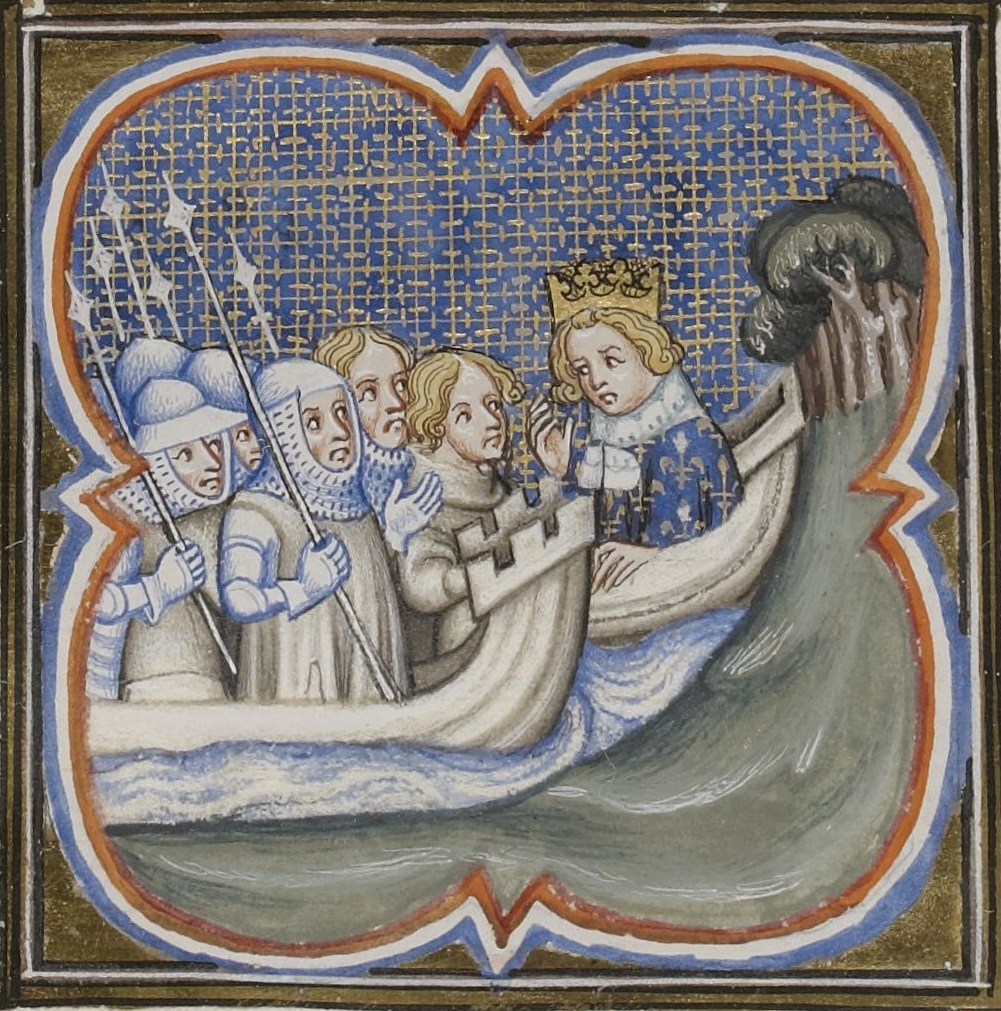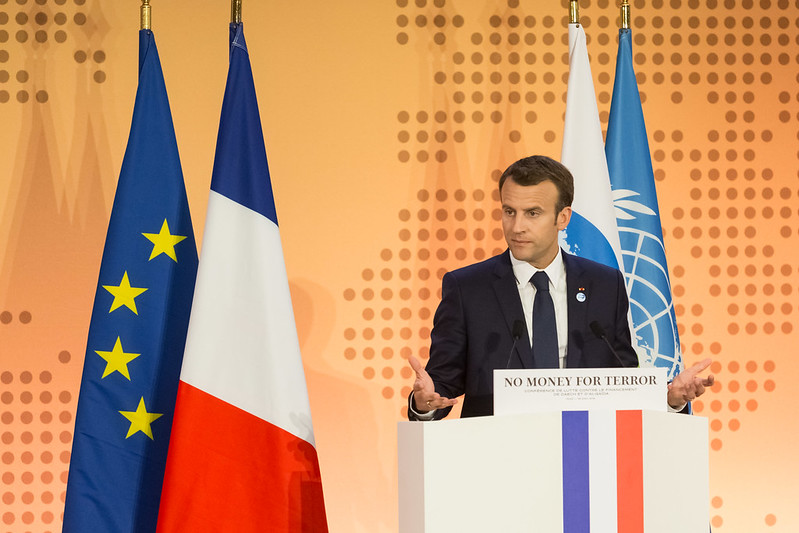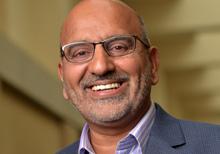
Čeština: Ludvík IX. Via Wikimedia Commons.
They’ve taken us prisoner,
they’ve locked us up:
me inside the walls
you outside
But that’s nothing.
The worst
is when people—knowingly or not—
carry prison inside themselves . . .
Most people have been forced to do this,
honest, hard-working, good people
who deserve to be loved much as I love you
–Excerpt from Nazim Hikmet, 9-10pm. Poems.[1]
In his signature analysis of European society, the late Tony Judt wrote about how the burden of history weighed heavily on the continent in the twenty-first century. Judt reflected on Europe’s self-image, memories, and culture at a time of great change. At this time, globalization was increasing the exchange of goods across a variety of cultural and political boundaries. As such the people exchanging these goods were also experiencing the world in new ways. Judt’s insight, in a nutshell, was that “the problem was not so much education . . . [but] the public uses to which the past was now put. . . . Governments no longer exercised a monopoly over knowledge and history could not be altered for political convenience” (768).
As a historian Judt was not wrong about Europe’s burden of history. But no one in Paris seems to have heard him when he said that the government cannot control knowledge and history. Currently, ultra-secular French politicians vainly insist on pursuing forms of secularism that do not resonate with all its citizens. Provocatively one might ask: Which history and knowledge of Europe are we talking about? Today’s Europeans also include Muslims and their experiences ought to be part of the moral and political conversation.
The public use of France’s history was most recently put on display in an episode that injured and wounded the sentiments of the country’s estimated 5 million Muslim citizens. How? Sadistically laser projected onto Paris’ government buildings were highly inflammatory and demeaning caricatures of the Prophet Muhammad, a figure cherished by Muslims around the world. In doing so, a sector of the French public and its government took delight in abuse under the guise of the right to free speech, a cherished value with deep historical roots in French political society. This episode followed on the heels of a terrorist beheading of Samuel Paty, a schoolteacher who displayed satirical cartoons of the Prophet Muhammad in his classroom to cement the doctrine of free speech in his students.
Colluding in this outrage was president Emmanuel Macron, who, in an act of collective psychic punishment, abetted the public display of the caricatures. This collective punishment recalls colonial modes of governance which the French used with abandon in its North African and Sub-Saharan colonies (126–27). To Macron’s mind such retaliatory measures were a corrective to the conduct of the “barbarians” in the heart of the Republic, namely the Muslims, ironically described by Houria Bouteldja as the “wretched of the interior” (121).
Playing the role of secular theologian-at-large, but more accurately as a trainee exorcist, Macron deigned to teach French Muslims how to become assimilated French citizens. He repeatedly signaled his expertise to exorcise the supposedly non-French Islam out of the bodies of his Muslim wards. Actually, Macron was merely rephrasing the infamous words of the dreadful Belgian king Leopold, the founder of the International Congo Society, who on September 12, 1876 told the Geographical Society in Brussels how to civilize Africa: “Civilization opens up the only part of the globe it has not yet reached, piercing the darkness, enveloping the entire population. That is, I wager to say, a crusade worth of this century of progress” (216). The theater of Macron’s crusade is his own backyard, the banlieues—from where the uncivilized darkness will lift when floodlit by the vaunted French version of secularism, laïcité.
Judt’s 2005 sprawling Postwar ironically spoke of French anxieties of the loss of civilization and memory. France’s remedy was to construct the Muslim as the “other.” Two decades into the twenty-first century France finds itself in the midst of a crisis over knowledge and history. While the issue ought to be more complex given decades of immigration by the “unassimilable” Muslims and Arabs, the difference in perception between France’s Muslims and apologists for a xenophobic vision of France is stark. History and knowledge, namely the experiences of those inhabiting France’s economically deprived banlieues, stands in glaring contrast with the Republic’s account of knowledge and history, the latter of which is symbolized by the Arc de Triomphe at the western end of Paris’ Champs-Élysées.
The theater of Macron’s crusade is his own backyard, the banlieues—from where the uncivilized darkness will lift when floodlit by the vaunted French version of secularism, laïcité.
For decades citizens of Europe who are of non-European descent—or as one analyst put it, immigrants who are “extra-European”—were frustrated to the point of despair in their bid to ensure that the rules of governance also reflect their sensibilities (157). Anthropologist Talal Asad long ago noted how Europe’s new immigrants and citizens in the context of Britain were denied a say in “the construction of a domain within which legitimate politics can be practiced—a politics to defend, develop, modify, or redefine given traditions and identities” (305). The continuous formation of the European state ought to include the views, emotions, and feelings in laws, norms, and values of those who are excluded, albeit in constructive contestations, as Asad implies.
In ways not unlike resurgent white power in North America, the Germans, the British, the French, and other European nations have resorted to nostalgia to recover lost memories. The presence of persons of “extra-European” origins have displaced the memories of white Europeans. Now Europeans, and more so the French, feel they are not heirs to history but are cast as its orphans and victims. The creative re-imagining of the national past in France, wrote Judt, was of another order altogether, where history was now replaced by nostalgia (769).
Stripped of territory and resources by war and decolonization, France’s confidence and the security of its global empire were in the latter half of the twentieth century replaced by a search for the nation’s le patrimoine in initiatives led by Presidents Francois Mitterand and Jacques Chirac. They supported efforts to recover selected memorabilia of the French past. Overtaken by demographic transformation and the anxiety of loss, they inflated France’s cultural patrimony by physically enlarging heirlooms. During the Mitterand era this included enlarging the Port du Gard near Nîmes and Philip the Bold’s ramparts at Aigues-Mortes. During the same period, the prominent Parisian historian Pierre Nora was commissioned to edit a monumental three-part, seven volume, Les lieux de mémoire, translated as Realms of Memory. The French took care to preserve their historical, political, and cultural memories to the exclusion of the memories and symbols of its newer citizens, whose culture only deserved to be ignored.
French Jews were lucky: they received one entry in Realms of Memory. In a few paragraphs Claude Langlois wrote about Muslims and Arabs on the coattails of the following thought, namely, that between 1950 and 1970 some 250,000 to 300,000 Jews emigrated to France, many of whom were Sephardic Jews from North Africa whose ethnic presence went largely unnoticed. More worried was “a public much more keenly aware of the new presence of Islam on French soil” (115). Nothing captures the awareness of the presence and “problem” of Islam and Muslims better than the words of Archbishop, and later Cardinal Lustiger of Paris. Addressing a parent-teacher school event in 1982, he hailed Napoleon I’s recognition of Catholicism, the Protestant Church, and Judaism as a great milestone. “But what difficult problem we face now,” a traumatized Lustiger wondered, “with the unforeseen arrival of large numbers of French-speaking children of Islamic background!” (115).
The exclusion of Islam, France’s second largest religion, from the detailed analysis as an aspect of French culture “was not an oversight” but was deliberate, for there was “no assigned corner for Islam in the French memory palace,” observed Judt (774). On the face of it, this might appear to be an instance of mutual entrapment between the dominant French establishment and the Muslim subalterns in France. But on closer scrutiny, there is greater reluctance on the side of the establishment to provide Muslims any corner. France might profit from an exercise in remaking its national “knowledge economy” (121). Secularism as a modality of life has become, as social scientists would say, too “path dependent” to assume the exclusive right to the production of knowledge and is insufficient as a knowledge economy to deal with the range of experiences of people (238). In the words of Talal Asad, one will have to come to terms with the fact that for some Muslims being Muslim “is first and foremost a way of life and death oriented by a religious tradition in which moral freedom is not conceived of as the identity of the self with itself” (24). Collective flourishing and peace might only be possible when immigrant experiences are more fully integrated into the national life. This requires going beyond the integration of celebrity Franco-Arab football players and rap music artists, who are nonetheless pioneers in this new effort.

Terrorist acts by Muslim actors who avenge their political outrage in the theological rhetoric of blasphemy of a bygone era and those secularists engaging in the collective punishment of Muslims both contribute to a setback in human relations on the global stage. Human solidarity and global interdependence are indispensable for our collective survival as the reality of the Covid-19 pandemic and climate change dramatically make plain.
If France and Europe value their symbols then they will have to learn to respect the symbols of multiple cultures and civilizations. Deliberately mocking the sensibilities and religious symbols of religious minorities amount to psychic pain, as Elaine Scarry points out in the Body in Pain. Similar to sensory pain experienced by the body is the pain experienced in the working of the imagination. Why? “While pain is a state remarkable for being wholly without objects,” writes Scarry, “the imagination is remarkable for being the only state that is wholly its objects” (162). Imaginary pain, Scarry suggests, is more immediate, causing deeper and more lasting pain. As architectural historian Samir Younés writes, “Intellectual meanness procures satisfaction to the minds of those who enjoy inflicting emotional pain with the intention of causing feelings of inadequacy in a victim.” This amounts to the artistic elimination of the “other” (101). Commodifying Muslim religious symbols and turning these into weapons of torture, bullying, and offense are deplorable acts of violence clothed as free speech, especially when other acts of free speech such as Holocaust-denial and the denigration of people based on their race and/or gender are rightly deemed as hate speech and crimes.
Denigrating and dehumanizing Muslim subjects by turning their religious symbols into weapons of psychic torture allies the Western secular with revanchist Christian culture in a bid to redraw crusader-like boundaries of civilization once more. Muslims inside the West are the unthinkable “difficult problem,” in Cardinal Lustiger’s words. Actually, Macron and his allies at Charlie Hebdo and at Denmark’s Jyllands-Posten are icons of a new secular crusade masquerading as free speech.
Talal Asad described Britain in the 1980s in haunting commentary equally applicable to France today. Asad observed, in remarks soaked in satire, that European states are suffering a post-imperial identity crisis “as an unhappy instance of some immigrants with difficulties in adjusting to a new and more civilized world” (241). Proponents of the European Enlightenment once lectured the rest of the world about the need to embrace complexity. But many Europeans continue to think in straight lines, binaries, and reductionist models. Therefore, Asad’s analysis deserves repetition: “If Europe cannot be articulated in terms of complex space and time, which allow for multiple ways of life and not merely multiple identities to flourish, it may be fated to be no more than the common market of an imperial civilization, always anxious about (Muslim) exiles within its gates and (Muslim) barbarians beyond.” His question was: “In such an embattled modern space—a space of abundant consumer choices and optional lifestyles—is it possible for Muslims to be represented as Muslims?” (24–25). Things have since worsened. French police continue to round up scores of 10 year-old Muslim kids at dozens of schools and terrorize them for hours at police stations for allegedly supporting terrorism. In this case secularism, like terrorism, makes “people carry prison inside themselves” in the poet Nazim Hikmet’s compelling words.
[1] John Berger, Hold Everything Dear: Dispatches on Survival and Resistance, 36. Translated by Randy Blasing and Muten Konuk.


Very well done Ebrahim. My take away from the article is that this situation may not be unique to France, it may be brewing in a morphed variety in other secular tending nations where Muslim presence is growing! With emerging Muslims populations in countries like France, nations will have the feeling of lost history and will be in search of memorabilia that they can identify with! While doing so they may unfortunately repeat in a knee jerk reaction what is happening in present day France. I think Talal Asad was alluding to something like this in his commentary!